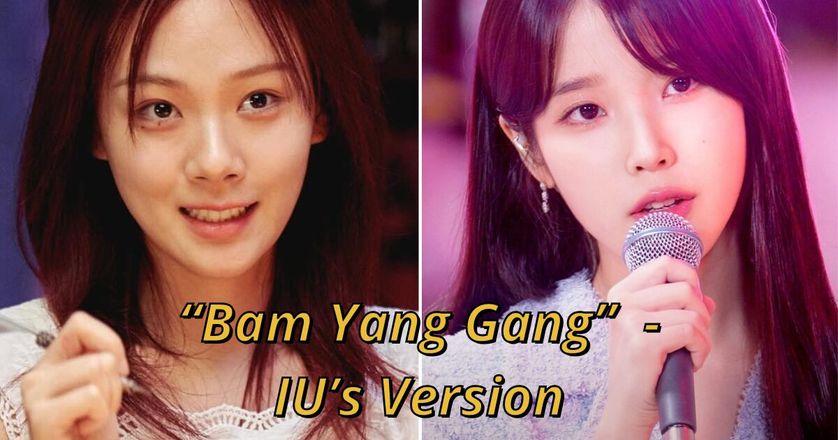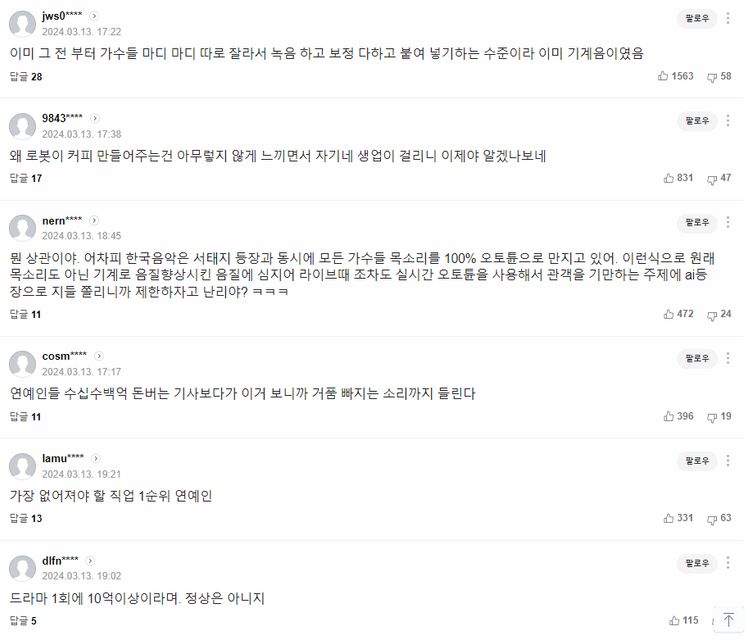Netizens Weigh In On AI K-Pop Cover Debate With Scathing Opinions

The fast-paced popularity of artificial intelligence (AI) powered programs among the masses has raised flags about its ethics, as most uses of AI infringe upon the intellectual property (IP) rights of artists. AI-generated art, be it images or songs, scrapes the internet for already existing artworks made by real artists and mashes them up to create the desired combination of a user.
While technologically, it is an excellent advancement in machine learning, AI tools have also raised legal and ethical concerns, even in the sphere of K-Pop. Over the past few months, the popularity of AI-generated song covers has exploded, as evident by their abundance on YouTube. Recently, the AI covers of BIBI’s latest viral song, “Bam Yang Gang,” rendered in the voices of IU¸ Baek Yerin and even Park Myung Soo, created a buzz in South Korea. Each of the covers garnered thousands of views, owing to the seamlessness of the AI-generated voices of each of the artists, as if they really made the covers themselves.
The veteran Korean singer Jang Yoon Jung came across the AI covers in a video on the YouTube channel Dojang TV and expressed grave concern over how this technology will affect artists.
I didn’t expect AI to work well even for singing, but if this is how it is, then why would singers even record? You can just generate my voice with AI and sell the music. Won’t you just have to pay for the technology?
— Jang Yoon Jung
Park Myung Soo was also taken aback by his AI-generated cover of “Bam Yang Gang,” wondering how this advanced technology might affect celebrities.
According to the current laws in South Korea, making AI cover songs without the permission of the actual owner of the voice is a punishable offense. The Ministry of Culture, Sports, and Tourism has also emphasized the need for prior permission while creating AI covers to avoid copyright infringement issues.
Still, the entire world is struggling to keep its legislation up to pace with AI technology, and Korea is no exception. The country still has a bill pending in the National Assembly that contains provisions on mandatory labeling of AI utilization, which can prevent the potential side effects of AI content. This year, the Ministry of Culture, Sports, and Tourism also plans to announce a set of policies to regulate AI and copyright issues after soliciting public opinion.
Korean netizens, however, seem to be not too worried about this issue. While some pointed out that singers already heavily depend on software programs a lot these days, others expressed disdain over the fact that the entertainment industry is getting the spotlight in this issue while other industries have already replaced their workers with technology.

- “Even before this, singers were already recording each verse separately, fixing them, and then pasting them together. So, it was already at the level of being machine-generated anyway.”
- “They never cared when robots were making coffee, but now that their livelihood is at stake, I guess they understand.”
- “Who cares? Ever since Seo Taiji, Korean singers have been 100% autotuned anyway. They manipulate voices with machines, even during live performances, using real-time autotune to deceive the audience with artificially enhanced sound quality that isn’t even their original voices. And now they’re freaking out because AI is taking over, and they’re feeling threatened? LOL.”
- “I saw this (article) while reading about celebrities earning billions, and now I can hear the celebrities’ bubbles bursting.”
- “Celebrities are the number one profession that needs to be gone.”
- “Earning more than 1 billion Won per drama episode is not normal.”